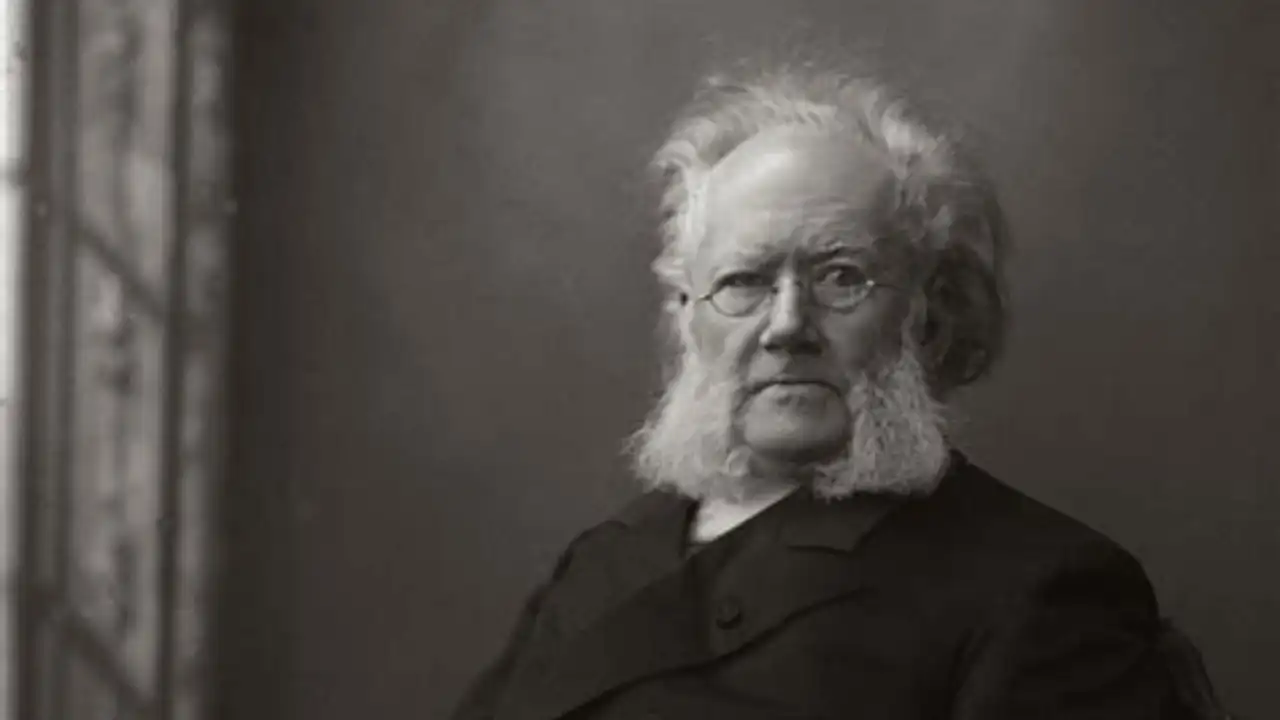Themes in Henrik Ibsen’s Works
Henrik Ibsen, a seminal figure in the development of modern drama, is celebrated for his pioneering exploration of social, psychological, and philosophical themes. His works, characterized by their realism and depth, resonate with audiences and scholars alike. Ibsen’s plays delve into the complexities of human nature and societal dynamics, challenging conventions and provoking thought.
- Individual vs. Society
Ibsen’s characters often struggle to assert their individuality against societal expectations and norms. This theme is vividly portrayed in “A Doll’s House,” where Nora Helmer’s journey toward self-discovery leads her to leave her family, defying the traditional roles imposed on women.
“I must stand quite alone if I am to understand myself and everything about me.”
“A Doll’s House”
- Gender Roles and Feminism
Ibsen critiques the restrictive gender roles and the subordinate position of women in society. His plays often depict women seeking autonomy and challenging the limitations imposed upon them.
“Oh, I am burning! I am burning with anxiety! What is it to be allowed to die in peace with the white tablets in my mouth, just as my father did?”
“Hedda Gabler”
- Moral Hypocrisy
The theme of moral hypocrisy runs through many of Ibsen’s works, exposing the double standards and hidden truths behind respectable facades. In “Ghosts,” the protagonist Mrs. Alving attempts to conceal her late husband’s moral failings while dealing with their consequences.
“Ghosts! When I heard Regina and Oswald in there, it was as though I saw ghosts before me.”
“Ghosts”
- The Nature of Truth and Reality
Ibsen explores the tension between appearance and reality, often revealing the harsh truths hidden behind socially constructed illusions. “The Wild Duck” is a prime example, where the revelation of painful truths leads to tragedy.
“Rob the average man of his life-illusion, and you rob him of his happiness at the same stroke.”
“The Wild Duck”
- The Burden of the Past
Past actions and the legacy of previous generations frequently haunt Ibsen’s characters. This is evident in “Rosmersholm,” where the characters struggle with the lingering effects of past events and decisions.
“There is something that must be rooted out of the lives of both of us.” “Rosmersholm”
- Existential and Philosophical Questions
In his later works, Ibsen delves into existential themes, such as the search for meaning, personal fulfillment, and the inevitability of death. These plays often reflect a more reflective and philosophical outlook.
- The Struggle for Identity
The quest for self-identity and the struggle to define oneself independently of societal expectations is central to many of Ibsen’s works. His characters often embark on journeys of self-discovery that challenge their preconceived notions of identity.
“To live is to war with trolls in heart and soul. To write is to sit in judgment on oneself.”
“Peer Gynt”
- Social Critique and Reform
Ibsen’s works often serve as a critique of societal institutions such as marriage, religion, and politics. Through his plays, he advocates for social reform and challenges the status quo.
“The majority is never right. Never, I tell you! That’s one of these social lies that no free man who thinks for himself can accept.”
“An Enemy of the People”
- Psychological Complexity
Ibsen delves into the inner lives of his characters, exploring their motivations, desires, and conflicts. His plays often portray characters with deep psychological depth and complexity.
“A man should never put on his best trousers when he goes out to battle for freedom and truth.”
“An Enemy of the People”
Conclusion
Henrik Ibsen’s exploration of individual versus society, gender roles, moral hypocrisy, the nature of truth, the burden of the past, and existential questions has left an indelible mark on modern drama.
His plays continue to challenge and inspire, offering profound insights into the human condition and societal dynamics. Through his innovative techniques and thematic depth, Ibsen has earned his place as a cornerstone of modern theatrical literature, influencing countless playwrights and continuing to provoke thought and discussion in contemporary audiences.
